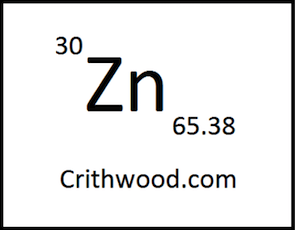
Curated with aloha by
Ted Mooney, P.E. RET

The authoritative public forum
for Metal Finishing 1989-2025

-----
Copper vs. Galvanized Steel Ground Rods /Earth Rods
Q. I would like to know your opinion/comments on corrosion performance of copper -vs- galvanized steel grounding rods in underground applications. I will appreciate if you could provide me, besides generalities, some hard data/ references on the subject.
Raj Singh- Cleveland, Ohio, U.S.A.
2004
A. Your company apparently has experience distributing both, Raj. Can you please start us off with a hypothesis or some of those generalities so we can focus in on particulars for you? Thanks!

Ted Mooney, P.E. RET
Striving to live Aloha
finishing.com - Pine Beach, New Jersey
2004
A. A ground rod should possess excellent electrical conductivity, be mechanically robust, be able to withstand repeated fault and surge currents, and be resistant to corrosion.Ideally, the rod should have a service life equal to that of the facility. Currently UL-listed 10 mil copper bonded steel rods are acceptable for a service life up to 40 years. The galvanized rods with 3.9 mils of zinc can be expected to provide protection for 10-15 years in most soil types.
Raj Singh [returning]- Cleveland, Ohio, U.S.A.
2004
![]() Thanks! Great intro.
Thanks! Great intro.

Ted Mooney, P.E. RET
Striving to live Aloha
finishing.com - Pine Beach, New Jersey
|
|
A. Galvanize will protect steel very well. However the Zinc will corrode and when the zinc is gone the steel will rust. Copper plating has little protection for steel unless you could plate a very thick deposit that entirely encapsulates the rod. Including no pitting or inclusions such as roughness. Copper is a better conductor of electricity than zinc.  Don Baudrand Consultant - Poulsbo, Washington (Don is co-author of "Plating on Plastics" [on Amazon or AbeBooks affil links] and "Plating ABS Plastics" [on Amazon or eBay or AbeBooks affil links]) 2004 ? I'm pretty sure the NEC requires copper or copper clad ground rod, doesn't it?  Jeff Watson - Pearland, Texas 2004 |
A. We have been manufacturing and selling HDG galv steel rod with comparatively thicker coats-130-150 microns and so far has shown good results. Copper bonded rods are preferred but are costly compared to Galvanized rods.
Nimish Taterh- Bombay, INDIA
2006
Q. Can a thin walled copper tube (1.00 mm thick) filled with metallized concrete act as an earthing electrode? Copper bonding process is time consuming and costly.
NIMISH TATERH- India
2005
Q. Can hollow copper tubes be used as grounding rods?
L'illette Vasquez- Boulder, Colorado USA
August 3, 2008
A. Hollow copper tubing can be used as a ground, but it lacks the strength to be driven into anything but very soft ground.
If you dig a hole for it and bury it, it will work very well indeed.
- Montrose, Colorado USA
September 24, 2008
A. Concerning using a 3/4 ",8' copper water pipe for a ground rod. To avoid damage do not drive it into the ground by using a hammer. Instead, assemble an adapter consisting of 3/4" fittings. They Include a garden hose adapter, a shut- off ball valve and a 90 degree street elbow. The ball valve will be used to control water pressure. Cut one end of the copper pipe on an angle. On the other end temporally solder the elbow of the adapter. Connect a garden hose to the adapter. When you start drilling you will have to first use a ladder to reach the ball valve. Turn on water, and using the ball valve to control the water, start pushing the pipe into the ground, using an up and down motion. You will be surprised how fast the drilling will go. When finished, Un-solder the elbow from the pipe. This adapter ca be used over and over.
Peter Stoerger- Union, New Jersey
February 24, 2015
Q. What is a better ground conductor, a solid piece of copper, or a hollow copper tube of the same length?
Anthony Migyanka- Irving, Texas
November 9, 2010
Q. Sir,
What are the remedies to stop copper to avoid from oxidation/tarnishing
Can lacquer cause the poor conductivity of the copper?
Thank you.
Engineer - Mumbai, Maharahstra, India
December 23, 2011
A. Hi Abhiraj. I can't imagine lacquer being acceptable on ground rods. You can temporarily deter tarnish/oxidation with sodium benzotriazole ⇦ this on eBay or Amazon [affil links] .
Regards,

Ted Mooney, P.E. RET
Striving to live Aloha
finishing.com - Pine Beach, New Jersey
Q. Please advise acceptable criteria for surface finishing of copper bonded earth rods in terms of color of finish and smoothness. Please advise if tarnishing is acceptable?
Deepti Shinde- INDIA
December 23, 2011
A. Hi, Abhiraj. Hi, Deepti.
As for tarnish, the rods should probably be treated with a tarnish preventer like sodium benzotriazole, but should not be clear coated because it would interfere with conductivity. For the rest, it is a matter of complying with whatever spec you have agreed to comply with, and complying with your customer's purchase order.
But please encourage reader response by describing your real-world situation rather than posing abstract questions: we've found that readers rarely volunteer to blindly jump into the middle of a contract dispute, and don't like to feel obligated to offer a dozen ifs-ands-&-buts that may or may not apply, so abstract questions often get poor response :-)
Good luck.
Regards,

Ted Mooney, P.E.
Striving to live Aloha
finishing.com - Pine Beach, New Jersey
December 26, 2011
Q. Dear Sir, we have copper hollow ground rod earthing. I request you to give me advantages of this over galvanised Iron hollow rod and normal GI Strip grounding. Is it conductivity and surface area of soil? And how to decide thickness of rod selected. Will it depend on charge dissipation in electrode?
Tanvi Sood- Chandigarh, India
April 23, 2012
Q. CAN ELECTRICALLY CONDUCTIVE CONCRETE BE USED FOR BACKFILL MATERIAL AROUND THE GROUNDING ROD, WHAT ARE THE ADVANTAGES
SWADHEEN BOLIA- JAIPUR ,RAJASTHAN, India
June 17, 2015
Q. Hello
Which would be better: painted, hot-dip galvanized, electrical galvanized steel for an earth anchor? How long would such a thing last in the ground? And how can I check to see if it is deteriorating?
Warm regards,
- marlbourough, new zealand
July 15, 2015
July 16, 2015
A. The question is a little like asking "Which is the best car?"
The ground conditions will dictate the best solution - if for example you had acidic clay soil, or highly peaty soils (probably not in Marlborough?) then galvanizing would have its life shortened by the acidity.
Paint is a term applying to thousands of different coatings. If you were to buy some paints they would certainly be inappropriate, but some others might be good.
"Electric galvanizing"? There's no such thing -- maybe you mean electroplated?.
Electroplating is unlikely to be much use or cost effective. Some metals plated onto steel might be good but so expensive as to be not worth it. Generally electroplating is a very thin coating.
Bitumastic type paint might be good for ground service.
Hot dip galvanizing can be very good in soil, can last 20+ years, but quite dependent on the soil.
A combination of coatings might be best. What life are you seeking?

Geoff Crowley
Crithwood Ltd.
Westfield, Scotland, UK

A. Hi. As editor I appended your letter to this thread, probably in error, as I'm not really sure whether "earth anchor" in your context meant a structural element tied into the ground or an electrical grounding element. Obviously, insulators like paint and bitumastic would be okay for structural members but not for those intended to offer electrical grounding.
Regards,

Ted Mooney, P.E. RET
Striving to live Aloha
finishing.com - Pine Beach, New Jersey
July 2015
![]() Hello, Ted I was referring to a structural element.
Hello, Ted I was referring to a structural element.
Geoff, thanks I would look to have the anchor in the ground 20 plus years, then I guess it would be easily replaceable
Thanks so much for your replies.
- marlbourough, new zealand
July 22, 2015
A. Copper or copper-clad Grounding Rods in proximity to galvanized anchor rods will cause corrosion of the galvanized anchor rods and your tower will fall over. Beware of copper grounding rods when combined with underground steel, even if the steel is galvanized. Consider replacing copper-clad grounding rods with galvanized grounding rods, then using magnesium anodes to protect galvanized anchor rods, for guyed towers. This is all about electro-galvanic chemical processes caused by small electric currents, where dissimilar metals act like a battery, similar to electroplating in reverse, that slowly or not-so-slowly eats away structural steel until it fails and your pipeline leaks, your tower falls, etc. This is well-known information, and if you don't know about it, you might want to get up to speed on it before your structure fails.
Doug Selsam- Oak Hills, California, USA
February 5, 2017
Q, A, or Comment on THIS thread -or- Start a NEW Thread